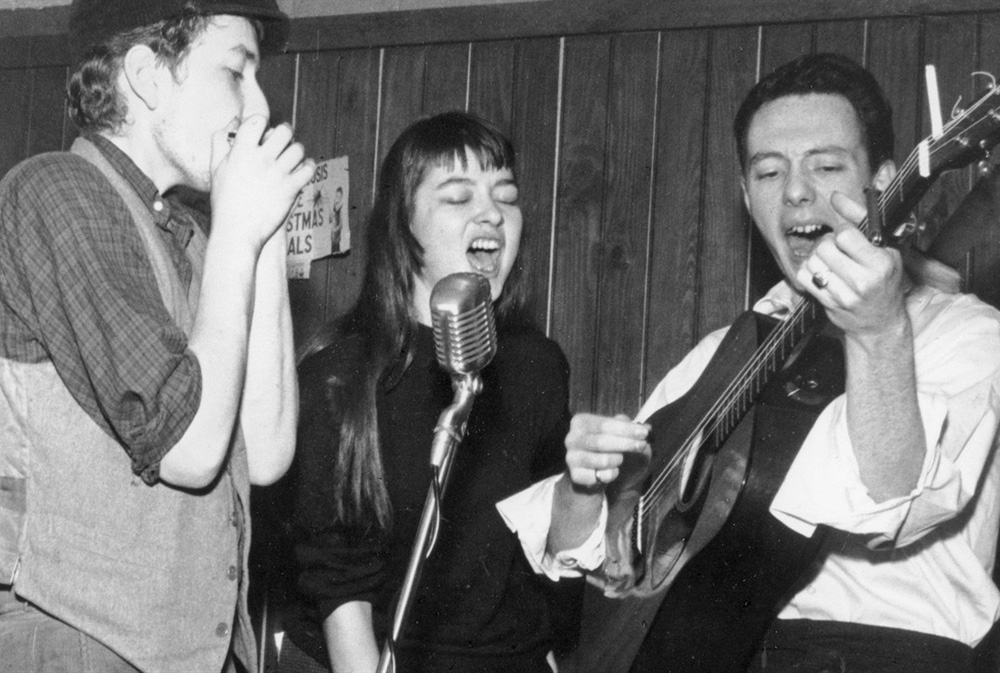“She was frustrated with the mechanism of getting known,” says Richard Tucker, the third husband of Karen Dalton in describing his wife in “In My Own Time,” Richard Peete and Robert Yapkowitz’s quite admirable biography of a folk singer whose distinguishing qualities put her out of sync with the times she was in and she likely suffered from depression that went undiagnosed. Dalton exists as a slippery figure in the film when there were few recordings made of her performances, but Peete and Yapokowitz answer the call of telling the story of someone who never sought out the spotlight yet whose passion for music pushed her into it reluctantly time and again.
For that, the likes of Bob Dylan and Nick Cave are grateful, as “In My Own Time” alludes to how she made her way into the former’s “Chronicles” as part of the ‘60s scene in Greenwich Village and the latter recalls once having to pull off the side of the road to listen to Dalton’s rendition of “Something On Your Mind” without distraction. While she notably resisted writing her own music, Dalton’s distinctive warbling, made everything she sang entirely her own, even having a habit of turning poetry into songs. Drawing on the tradition she picked up in Oklahoma where she found herself at odds with everything else, Dalton was the rare folk singer actually from the heartland at a time when New York recording studios were filled with local artists and the ache in her voice isn’t limited to what you hear, but what comes across from her journals (read by Angel Olson) where thoughts of discomfort with her surroundings are constantly noted.
While “In My Own Time” is advertised as a portrait of Dalton, it restrains itself to the structure of an outline when the artist so actively avoided recognition, with her daughter Abbe Baird relaying the family history that was passed down to her and friends and collaborators are careful to talk about her fragile mental state, refusing to be any bolder than any clinician at the time who didn’t yet have the vocabulary to put a name on the inner turmoil she was feeling. Yet when Dalton is admired for how, in the words of Rick Moody, her ability to draw out “nuanced silences” in her songs, Peete and Yapokowitz’s patient and somber approach to pacing and letting interviews breathe really seems apropos, allowing her spirit to come through in the consideration that everyone can be seen giving to their words about her when she so clearly put so much thought into the ones she’d use.
There’s an epilogue to “In My Own Time” that makes the work the filmmakers put into making sure Dalton was part of the historical record going forward especially moving when not only it is the loudest that are often most remembered, but that the materials we maintain our own collective memories with are so delicate as time wears on. But “In My Own Time” is worthwhile well before then not only in preserving Dalton’s place in pop culture, but to acknowledge there are artists who’d rather be doing anything else if they could and even if she didn’t genuinely have a gift, Dalton’s dedication to pursuing her art in spite of all the unwanted attention that it brought is both beautiful and a story that isn’t told enough.
“In My Own Time: A Portrait of Karen Dalton” will be streaming through DOC NYC from November 11th through 19th.




